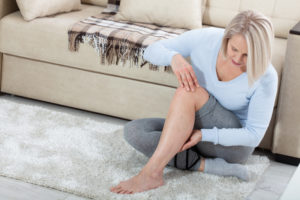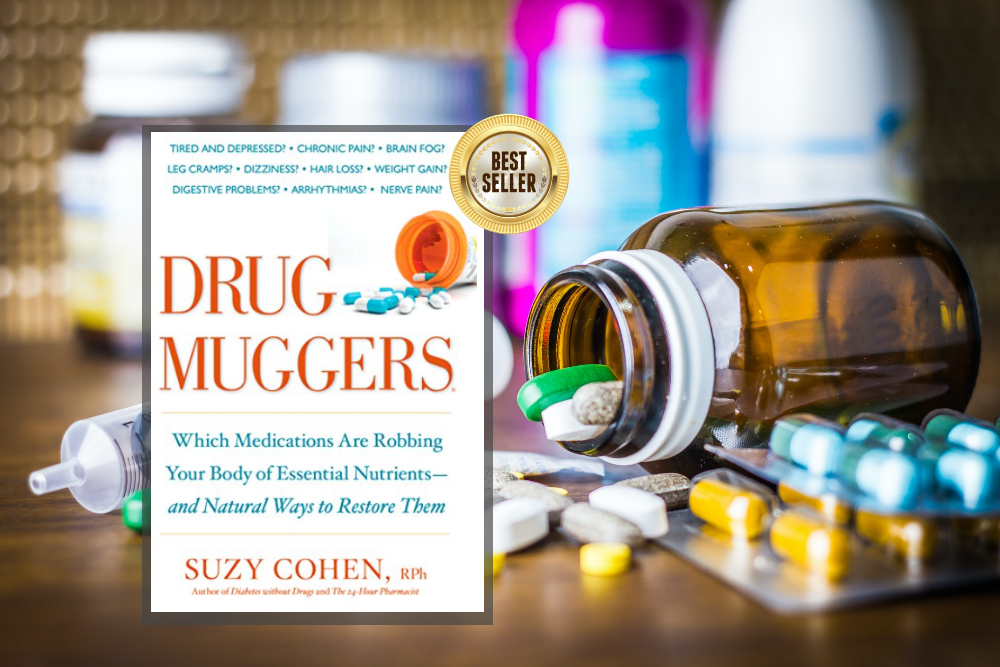What's On This Page?
ToggleRecently, I received a question through my syndicated column about muscle relaxers. I will answer it here on my website so that everyone who is dealing with this problem can find natural soothers. If you can get into a hot tub that might help, or if you can get a massage that’s also super useful! But sometimes you don’t have access to those types of remedies, or they are very expensive. I’ll teach you about other options right now.
First, let me show you the question I received from Hue in Boulder, Colorado.
I went on a hike that was way too steep and long. My muscles don’t recover quite as fast as when I was younger. What can I do or take?
If it were me, I’d take a hot bath with Epsom salts and a few drops of essential oils. The most important muscle relaxers include cypress, wintergreen, rosemary or basil. In fact, if you plan on working out hard, just rub a few drops of the oil into your muscles. If you feel the need, you could always ask your doctor if an over-the-counter pain reliever is okay for you.
Even though they are sold without a prescription, they have interactions, they affect the stomach or liver, and they have cautions so I’m not sure what is right for you.
Could it Be CoQ10 Depletion?
Here’s the thing though, most people suffer with chronic muscle soreness, and they’re not related to a sports injury, going horseback riding, or whatever… you pulling your ham, then it could be a nturient depletion. I pose this question to you to think about.
If your muscles hurt all the time, or feel weak, I suggest you look in your medicine cabinet! Over 300 medications rob your body of CoQ10 (ubiquinol) and that can lead to muscle weakness, spasms, leg cramps, charley horses and other problems.
Cholesterol (statin) drugs and blood pressure pills are the most infamous culprits, but it can also happen with diuretics, estrogen hormones, steroids and antibiotics. I wrote the book on this topic of nutrient depletion, so please refer to your copy of Drug Muggers for more on that. Let’s get back to acute muscle pain now.
The three most popular pain-relieving medications are acetaminophen (Tylenol), ibuprofen (Advil) and naproxen (Aleve). Natural anti-inflammatories won’t work quite as fast but they deserve honorable mention because they have other incredible health benefits. For example, boswellia, curcumin, and bromelain are known to have natural pain-relieving and anti-inflammatory properties.
Fun fact: Frankincense is indeed another name for Boswellia. It’s derived from the resin of trees in the genus Boswellia. See the picture of the tree below. Frankincense has been used for centuries in various cultural and religious contexts, and it is valued in traditional medicine, particularly in Ayurvedic medicine, for its anti-inflammatory properties. In the context of health supplements, Boswellia extract is often used to help reduce inflammation, improve joint function, and support overall wellness.
How Collagen Can Impact Joints
The Power of Collagen: Collagen is like the glue that holds our bodies together, and it plays a pivotal role in the health of our joints. As we age, our body’s natural collagen production declines, which can lead to a reduction in joint cushioning and increased friction.
Supplementing with collagen, particularly types I and II, can help support joint health by promoting the repair of cartilage, enhancing joint flexibility, and reducing pain associated with joint deterioration. There are some nuances to supplementing with collagen. I think you should read this before buying anything, Collagen Peptides: The 4 Main Ingredients Needed For Joint Comfort.
The Effectiveness of Boswellia for Joint Health
Boswellia – Nature’s Joint Soother: Boswellia, also known as Indian frankincense, has been praised for its anti-inflammatory properties, making it a superb choice for joint support. A study published in the Journal of Rheumatology found that Boswellia extract significantly reduced pain and improved knee-joint functions within as little as seven days of starting treatment. This herb works by inhibiting pro-inflammatory enzymes, which can contribute to the degradation of cartilage and joint pain.
Other Muscle Relaxers, Soothers and Joint-Loving Options
1. Moist Heat Therapy Pads: These non-medicated, odorless pads are sold by various companies and some of them are even air-activated so they get kind of toasty on your skin, very similar to the moist heat of a shower. They help ease muscle/joint aches or pain associated with PMS, overexertion, and strains for up to eight hours.
2. Menthol medicated patches and creams: This creates a unique cooling sensation on the skin, but it doesn’t support muscle health or heal the problem.

3. MSM creams, lotion and supplements: There’s debate about whether this goes into the skin or not, but I think it does. In fact, many people report benefits from these products, especially with flexibility, muscle cramps, spasms, minor joint pain and knee pain. MSM is also available in supplement form and help to take the kinks out! I put some MSM in my formula called Joint Script. Visit my shop to learn more about how that can support your flexibility.*
4. Capsaicin: It’s the active ingredient in chili pepper and you can buy it at pharmacies nationwide. You may feel the warmth of these on your skin. I suggest the patches or roll-on for ease but you can use a lotion (just wash your hands). These work fabulously for me, especially around my tight traps (trapezius muscles). One application may be okay, but you’ll get even better results with repeated applications.
5. Malic acid and magnesium: These are two supplements that I consider a one-two punch for muscle pain. They help with anxiety and muscle tenderness. I don’t go a day without my magnesium supplements or I get cramps. This is because I had my parathyroid glands removed. You can watch my VLOG about that if you want.
Incorporating these strategies into your lifestyle can provide significant relief from joint discomfort and improve overall joint health.

Summary on Muscle Relaxers
For immediate relief, a hot bath with Epsom salts and essential oils such as cypress, wintergreen, rosemary, or basil can be soothing. For persistent muscle soreness potentially caused by nutrient depletion from medications, supplements like CoQ10 are suggested. Over-the-counter analgesics like acetaminophen, ibuprofen, and naproxen, along with natural anti-inflammatories like boswellia, curcumin, and bromelain may help.
For targeted muscle and joint relief, various products like moist heat therapy pads, menthol creams, MSM supplements, capsaicin applications, and malic acid with magnesium supplements are discussed. These can aid in reducing discomfort and improving flexibility.
Furthermore, the importance of collagen can support joint function and reduce pain. The benefits of Boswellia (see the tree above) for its anti-inflammatory properties are also detailed, noting its effectiveness in improving joint function and reducing pain based on clinical studies.

Suzy Cohen, has been a licensed pharmacist for over 30 years and believes the best approach to chronic illness is a combination of natural medicine and conventional. She founded her own dietary supplement company specializing in custom-formulas, some of which have patents. With a special focus on functional medicine, thyroid health and drug nutrient depletion, Suzy is the author of several related books including Thyroid Healthy, Drug Muggers, Diabetes Without Drugs, and a nationally syndicated column.


